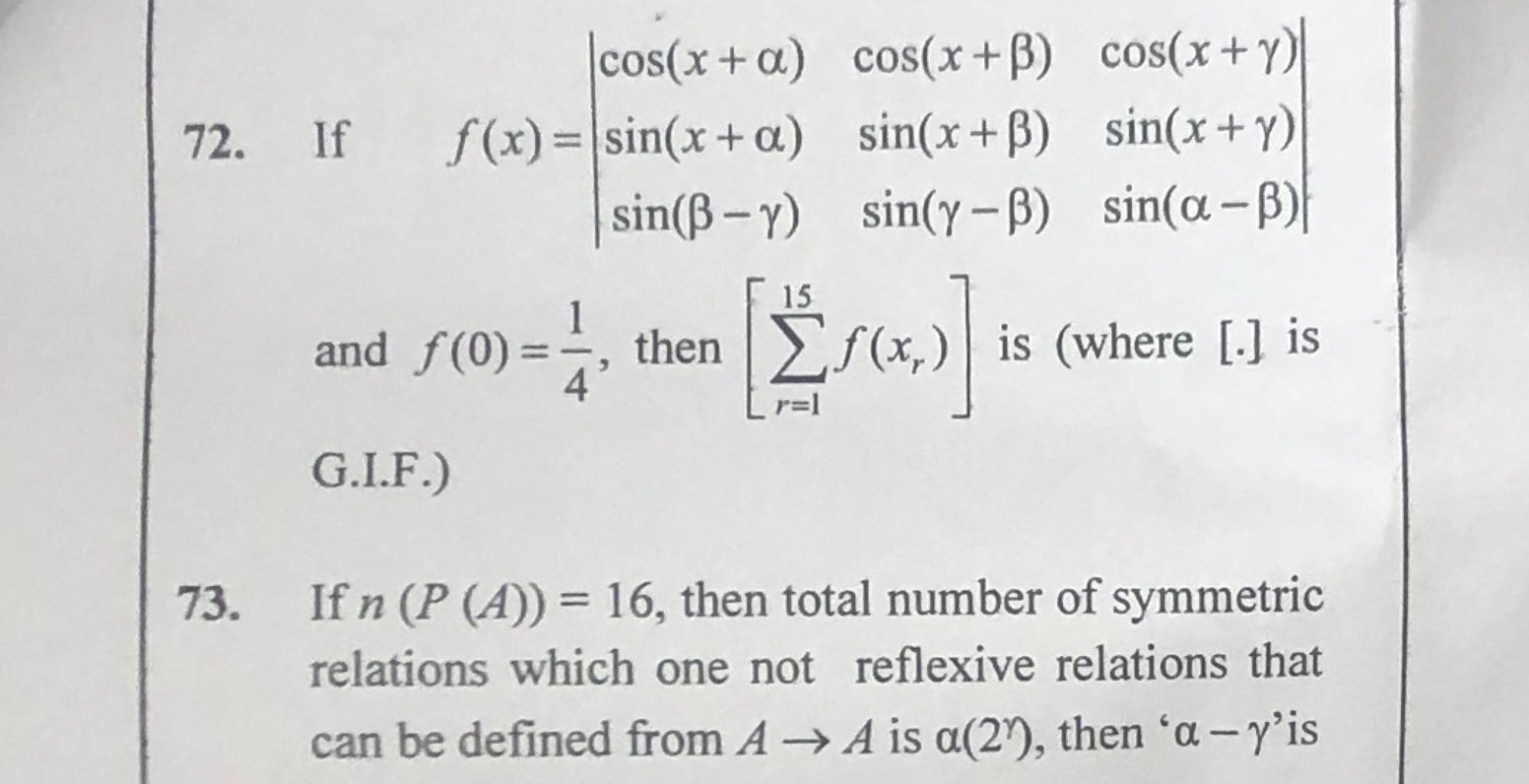Question
Question: If $f(x) = \begin{vmatrix} \cos(x+\alpha) & \cos(x+\beta) & \cos(x+\gamma) \\ \sin(x+\alpha) & \sin(...
If f(x)=cos(x+α)sin(x+α)sin(β−γ)cos(x+β)sin(x+β)sin(γ−β)cos(x+γ)sin(x+γ)sin(α−β)
and f(0)=41, then [∑r=115f(xr)] is (where [.] is G.I.F.)

3
Solution
The given function f(x) is a determinant. Expanding the determinant along the third row: f(x)=sin(β−γ)cos(x+β)sin(x+β)cos(x+γ)sin(x+γ)−sin(γ−β)cos(x+α)sin(x+α)cos(x+γ)sin(x+γ)+sin(α−β)cos(x+α)sin(x+α)cos(x+β)sin(x+β)
Using the identity cosAsinAcosBsinB=cosAsinB−cosBsinA=sin(B−A): The first determinant is sin((x+γ)−(x+β))=sin(γ−β). The second determinant is sin((x+γ)−(x+α))=sin(γ−α). The third determinant is sin((x+β)−(x+α))=sin(β−α).
So, f(x)=sin(β−γ)sin(γ−β)−sin(γ−β)sin(γ−α)+sin(α−β)sin(β−α). Since sin(γ−β)=−sin(β−γ) and sin(β−α)=−sin(α−β): f(x)=sin(β−γ)(−sin(β−γ))−(−sin(β−γ))sin(γ−α)+sin(α−β)(−sin(α−β)) f(x)=−sin2(β−γ)+sin(β−γ)sin(γ−α)−sin2(α−β).
This expression is independent of x, meaning f(x) is a constant function. Given f(0)=41, we have f(x)=41 for all x.
We need to calculate [∑r=115f(xr)]. ∑r=115f(xr)=∑r=11541=15×41=415. The greatest integer function of this sum is [415]=[3.75]=3.
